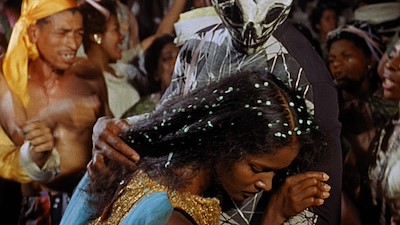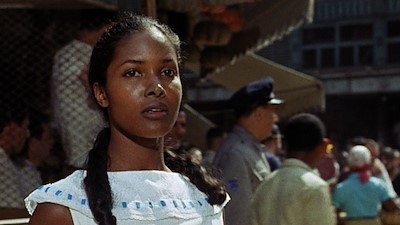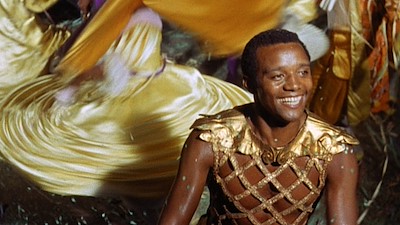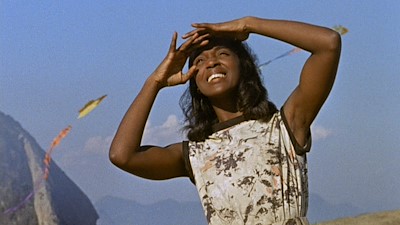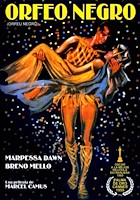Orfeu Negro
Marcel Camus, Brésil, France, Italie, 1959o
A la veille du carnaval de Rio, Eurydice arrive de la campagne pour y retrouver sa cousine Sérafina. Elle fait la rencontre d'Orphée, conducteur de tramway et artiste adulé par le peuple pour ses qualités de danseur et de guitariste. Mais Eurydice, électrocutée par un câble de tramway, meurt en tentant d'échapper à son destin. Orphée la cherche partout.
Fifty years later, the popular take on Black Orpheus generally emphasizes the memorable score, vibrant Carnival dance sequences and the indisputable charms of a very attractive cast, while more wary and skeptical critics, taking their cue from the film's early detractors (including some of the leading lights of the Nouvelle Vague), point out the socio-political compromises, glamorizations of poverty and arguably exploitive racial and ethnic aspects of director Marcel Camus' career highlight.
David BlakesleeGalerie photoso

